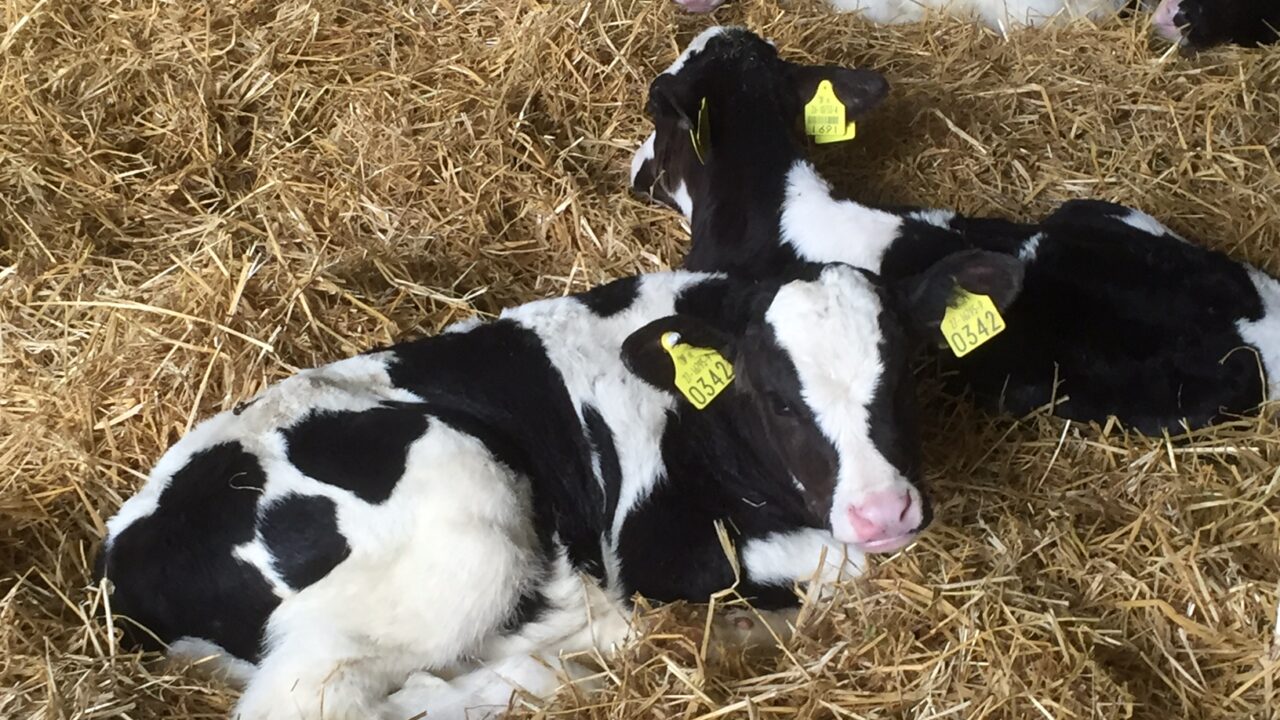The multitude of unwanted dairy bull calves about the country since the onset of calving has once more highlighted the need for sexed semen technology to advance.
“The Jersey-cross bobby calves would be the most difficult to get rid of,” said ICMSA livestock committee chairman Michael Guinan.
“I’ve heard of farmers actually giving them away, whereas your Holstein Friesian has some value – you could get €50 or €60. But the export market does not want the Jersey-cross bull calves. It’s a very specialised market.
“My advice to dairy farmers would be as there is such small money in it you’re best to get them off the farm and let someone else worry about the end product.”
Teagasc Head of Dairy Knowledge Transfer Tom O’Dwyer is of a similar opinion.
“From what I’ve heard so far this year, farmers have been able to sell dairy bull calves and the price is good, but there will be a difficulty in moving the less-valuable dairy bull calves.
“The industry is going to have to recognise that because we have more cows in the country we are going to have more calves born and ensure there are markets or means of selling them into the future,” O’Dwyer said.
Sexed Semen The Ultimate Solution
ICMSA’s Guinan also said that there is no problem getting sexed semen, only it’s expensive to use and has some years to go to reach a higher, more satisfactory standard for farmers.
“I’ve tried it myself and it can be hit and miss with conception rates. It’ll be a few years before it’s a runner. At present, its fertility isn’t quite good enough.”
It is understood that sexed semen accounts for 6% of total semen usage in the dairy industry and it is still only recommended for use on maiden heifers and highly fertile dairy cows.
Trials carried out in Ireland have achieved conception rates of 87%, compared to up to 95% for conventional semen.
However, it understood sexed semen is expected to match the conception rates of conventional semen within the next decade.
Teagasc’s O’Dwyer said Jersey–cross calves will need to be sold on to someone who is going to export them.
He added that Teagasc has done research done that shows sexed semen works, but the bigger question is whether it can be rolled out on a widespread, commercial basis in Ireland.
“It’s not widely commercially available. There are a limited numbers of bulls that are sexed and we don’t have the facility within Ireland to sex semen. I believe if it was widely available, with a wider choice of bulls, it would be a technology that would be better taken-up.
“The research indicates that it works, but there are guidelines around the types of cows you should use it on.”
O’Dwyer said research shows sexed semen is cost effective in herd replacement.
“You use it early in the season and you also get your heifers all born in a cluster, so they are born early and easier to rear as a group. Because you are going to sex the semen it’s going to cost a little bit more but the advantages outweigh the costs.”
